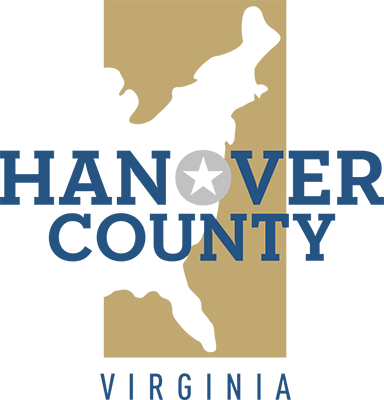- Hanover County has the lowest real estate property tax rate in the Greater Richmond region.
- No Business and Professional Occupation License Tax (BPOL) is required, except for contractors.
- Machinery and tools tax rates are regionally competitive.
- Business personal property taxes are calculated on a sliding scale and are depreciated each year the property is in use.
- Merchant’s capital or inventory tax is based only on inventory in place on January 1 of each year.
- Consumer utility tax for electric, gas and telephone are regionally competitive.
- Businesses located in the Town of Ashland pay Town taxes in addition to County taxes.
Business taxes in Hanover County and the Town of Ashland are described in the tables below.
Additional information about County taxes is available from Hanover County’s Commissioner of Revenue. All businesses must register with the Commissioner of Revenue’s office.
| Tax Description | Hanover County | Assessment Ratio per $100 of Assessed Value |
|---|---|---|
| Real Estate | $0.81 | 100% of market value |
| Machinery and Tools | $3.57 | 10% of original cost |
| Business Personal Property1 | $3.57 | 60% of original cost (Year 1 in service) |
| 50% of original cost (Year 2 in service | ||
| 40% of original cost (Year 3 in service | ||
| 30% of original cost (Year 4 in service | ||
| 20% of original cost (Year 5 in service) | ||
| 10% of original cost (Year 6+ in service) | ||
| BPOL | None2 | |
| Merchant’s Capital | $1.90 | 10% of market value based on inventory on hand on January 1 |
| Industrial/Commercial Utility | Yes | 0.5% of gross receipts |
| Consumer Utility | $3.00 | Per line per month |
| 1Business personal property includes, but is not limited to, automobiles and trucks, office equipment, furniture and fixtures, and machinery and equipment of non-manufacturing businesses. Items specifically exempted include: computer application software, corporate aircraft of manufacturers, inventory (except inventory of merchants), and merchandise in a foreign trade zone. The machinery and tools of manufacturers and certain of other businesses are considered a separate class of property and are subject to the machinery and tools tax. These items may be taxed at a lower rate than other personal property.
2Only contractors are subject to BPOL of $0.10 per $100 of gross receipts of $100,000+. |
||
Local Taxes – Town of Ashland
The Town of Ashland is a 7.2 square mile incorporated town in central Hanover County. Businesses located in the Town may be subject to an additional levy on some business and real estate taxes. Visit the Town’s website to view business tax rates.
| Tax Description | Town of Ashland | Assessment Ratio per $100 of Assessed Value |
|---|---|---|
| Real Estate | $0.10 | 100% of market value |
| Machinery and Tools | $0.70 | 10% of original cost |
| Business Personal Property1 | $0.70 | 60% of original cost (Year 1 in service) |
| 50% of original cost (Year 2 in service | ||
| 40% of original cost (Year 3 in service | ||
| 30% of original cost (Year 4 in service | ||
| 20% of original cost (Year 5 in service) | ||
| 10% of original cost (Year 6+ in service) | ||
| BPOL | Yes3 | |
| Merchant’s Capital | None | 10% of original cost based on inventory in place on January 1 |
| Industrial/Commercial Utility | None | 0.5% of gross receipts |
| Consumer Utility | $1.00 (electric, gas, & telephone) Per line per month | Per line per month |
| 3 There is a $30 license fee for non-manufacturing businesses that have gross receipts of less than $1,000,000. The fee is $.07/$100 for companies with receipts between $1 million and $25 million. Businesses with receipts above $25 million but less than $50 million are to add an additional tax rate of $.05/$100. Businesses with more than $50 million in receipts are taxed an additional $0.02/$100. | ||
State Taxes
Corporate Income Tax: 6 percent
The corporate income tax rate is applied to federal taxable income. If a corporation is engaged in multi-state activities and its income is subject to tax in Virginia and other states, it pays tax only on the portion of its income from Virginia sources. The apportioned income is based on a three-factor formula of payroll, property, and sales.
Sales and Use Tax: 6 percent
Sales and use tax is charged on consumer goods bought in the State of Virginia. Of the 6 percent sales tax charged, 4.3 percent is allotted to the Commonwealth of Virginia with an additional 0.7 percent collected as a Central Virginia regional state sales tax, and 1 percent to the local jurisdiction in which the tax was charged.

